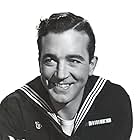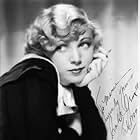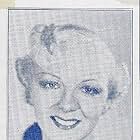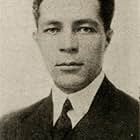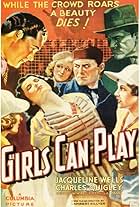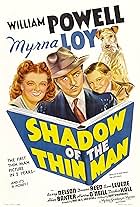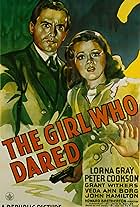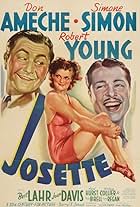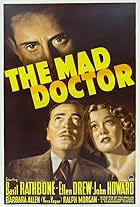A female press agent must select a "Mr. Manhattan" and "Miss Brooklyn" for an ad campaign mounted by a struggling soup company. The Mr. Manhattan chosen is a singing soda jerk who doesn't wa... Read allA female press agent must select a "Mr. Manhattan" and "Miss Brooklyn" for an ad campaign mounted by a struggling soup company. The Mr. Manhattan chosen is a singing soda jerk who doesn't want to play along.A female press agent must select a "Mr. Manhattan" and "Miss Brooklyn" for an ad campaign mounted by a struggling soup company. The Mr. Manhattan chosen is a singing soda jerk who doesn't want to play along.
Stella Adler
- Linda Craven
- (as Stella Ardler)
Kathryn Kane
- Polly Marr
- (as Katherine Kane)
Claribel Bressel
- Young Girl
- (uncredited)
Sonny Bupp
- The Brophy boy
- (uncredited)
Audrey Carol
- Young Girl
- (uncredited)
Billy Diamond
- Young Boy
- (uncredited)
Rex Downing
- Young Boy
- (uncredited)
Featured reviews
The "Sanford" soup company is having a crisis. It sells more in Glendale than it does in New York City and this is causing consternation amongst the board - who want to turn the factory into an ice rink! The company is now owned by the son of the industrious father - "Sandy" (Grant Richards) and he has to come up with a solution. Luckily, he has his press agent "Linda" (Stella Adler) who comes up with the dream solution. A beauty competition that will require people to submit loads of soup labels to be in with a chance of being "Miss Brooklyn" or "Mr. Manhattan". There are no shortages of entries, driving up their sales but also creating an headache for the board members who ultimately select the hunky, but completely disinterested "Bill" (John Payne) and the feisty "Polly" (Kathryn Kane). The idea is that the two will fall head over heels and marry. Somehow we just know that the execution of that plan is never going to turn out so ideally, as the course of true love never runs smoothly. This film starts off strongly, with Adler given pretty much free reign to establish a funny, lively and savvy character. Sadly, though, there is little chemistry between her and the handsome but very much by-the-numbers Payne, and as the plot meanders on the pace runs out and the characterisations revert more and more to type. The wittiness of the script peters out too, and by halfway through we are starting on a borderline farce with an all too predictable ending. It features a couple of unremarkable musical numbers from Sam Coslow and Burton Lane that are actually sung by their actors, but they seem to do little more than further reduce the story to melodrama. It's worth a watch, though, for the first half hour of Adler owning the screen.
10pb2030
Fast paced. Never a dull moment. Lots of unexpected characters and plot twists. The leads are surprising at every turn. Gives a fascinating view into the 30's. The male lead has depth and is very appealing. Stella Adler is radiant and quite atypical. Little details like the lead's soda jerking ability and his passion for aviation design are unexpected delights. Loved that what might have been a throwaway character - Miss Brooklyn - turns out to be a great singer with another unexpected attraction to men in uniforms with lots of buttons. The closing soda fountain fight is one of the best food fights on film, especially the final shot of "ice skating" on the slippery floor. So much rich detail and above all the perfect constantly fun pacing.
"Love on Toast" is a 1937 trite comedy starring Stella Adler (here credited as Ardler) as a publicity woman out to sell soup with a "Mr. Manhattan" campaign. "Mr. Manhattan" is supposed to marry Miss Brooklyn. Love gets in the way.
Adler comes off as a Glenda Farrell-Jean Arthur type. She's fast-talking, and her character is quick thinking and energetic. Adler was quite beautiful - I understand in order to break into films, she had a nose job. Whatever, she looks great.
As Mr. Manhattan, a baby-faced John Payne has one of his first film roles; he looks like Robert Taylor here, wearing the same makeup.
Thinking about the incredible contribution Adler made, teaching people like Brando, Harvey Keitel, Robert DeNiro, and Warren Beatty to name a few - it's interesting that, though she tried, she didn't break into the big time in films. Obviously, she was meant for bigger things.
Adler comes off as a Glenda Farrell-Jean Arthur type. She's fast-talking, and her character is quick thinking and energetic. Adler was quite beautiful - I understand in order to break into films, she had a nose job. Whatever, she looks great.
As Mr. Manhattan, a baby-faced John Payne has one of his first film roles; he looks like Robert Taylor here, wearing the same makeup.
Thinking about the incredible contribution Adler made, teaching people like Brando, Harvey Keitel, Robert DeNiro, and Warren Beatty to name a few - it's interesting that, though she tried, she didn't break into the big time in films. Obviously, she was meant for bigger things.
Publicity woman Stella Adler comes up with a campaign to sell soup: choose a "Mr. Manhattan" and have him fall in love with "Miss Brooklyn", all thanks to the power of soup. Unfortunately for her job, the sparks fly between intended patsy John Payne and her instead of her intended target.
I thought that Miss Adler was a fine hard-nosed publicity woman who knows it's all a sham, but there's something mechanical about the way that John Payne and she fall in and out of love that seemed to be "All, right, in this scene you like her, but she doesn't like you, or some combination of four intersections of "She/he loves me/ she/he loves me not." Perhaps it's the confident way that soda jerk John Payne steps up to a microphone in front of hundreds of people, or tells a whopper to get Miss Adler out of being lynched as a baby thief. Maybe Luis Alberni is channeling Chico Marx too strongly, then gives back the money. Unless you're doing Marx Brothers comedy, where the comics are utterly insincere and say whatever comes into their head, there needs to be a core of truth in the characters. In the end, I didn't care about the workings out of the plot, which ended with Boy Getting Girl, seemingly, because we've run out of pies to throw at each other, so let's end it here.
Perhaps it was simply a mismatch between Miss Adler, a life time in the Yiddish and Broadway theaters, and Mr. Payne, in his fourth movie and a decade younger than she. She could do her job competently, collect her paycheck, then return to the stage and teaching. Mr. Payne had no choice. He had to learn his acting without the advantage of being born to it.
I thought that Miss Adler was a fine hard-nosed publicity woman who knows it's all a sham, but there's something mechanical about the way that John Payne and she fall in and out of love that seemed to be "All, right, in this scene you like her, but she doesn't like you, or some combination of four intersections of "She/he loves me/ she/he loves me not." Perhaps it's the confident way that soda jerk John Payne steps up to a microphone in front of hundreds of people, or tells a whopper to get Miss Adler out of being lynched as a baby thief. Maybe Luis Alberni is channeling Chico Marx too strongly, then gives back the money. Unless you're doing Marx Brothers comedy, where the comics are utterly insincere and say whatever comes into their head, there needs to be a core of truth in the characters. In the end, I didn't care about the workings out of the plot, which ended with Boy Getting Girl, seemingly, because we've run out of pies to throw at each other, so let's end it here.
Perhaps it was simply a mismatch between Miss Adler, a life time in the Yiddish and Broadway theaters, and Mr. Payne, in his fourth movie and a decade younger than she. She could do her job competently, collect her paycheck, then return to the stage and teaching. Mr. Payne had no choice. He had to learn his acting without the advantage of being born to it.
Super soup saleswoman Linda Craven (acting teacher and legend Stella Adler in her first of only three film roles) gets the job of promoting the hot stuff during a heat wave in New York City. Her no brainer idea is to have a contest to find Mr. Manhattan and Miss Brooklyn. Luis Alberni plays Joe Piso an Italian soda fountain owner who submits an entree for handsome soda jerk Bill Adams (John Payne) without his knowledge. This premise sets up another forgotten screwball romantic comedy complete with snappy dialogue and pie fights. Turns out to be better than expected mostly because Miss Adler is great and reminds this reviewer of fast talking Rosalind Russell from His Girl Friday which would not come out until three years later. John Payne as always is watchable and has a low key charm. The rest of the cast also has some spit and polish: Isabel Jewell has clever lines to deliver; Franklin Pangborn gives us his slow burn and exasperated put-upon fellow; and Arthur Houseman (again) is drunk. Sadly this little Paramount gem is now owned by Universal who could care less. But for a short while it can be seen on YouTube!
Did you know
- TriviaOne of over 700 Paramount Productions, filmed between 1929 and 1949, which were sold to MCA/Universal in 1958 for television distribution, and have been owned and controlled by Universal ever since; its earliest documented telecast took place in Boston Wednesday 22 October 1958 on WBZ (Channel 4).
- SoundtracksI'd Love to Play a Love Scene
Written by Sam Coslow
Sung by John Payne (uncredited) while dancing with Stella Adler
Details
- Runtime1 hour 5 minutes
- Color
- Aspect ratio
- 1.37 : 1
Contribute to this page
Suggest an edit or add missing content








